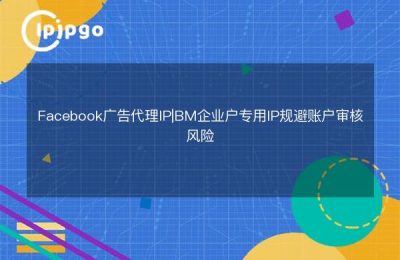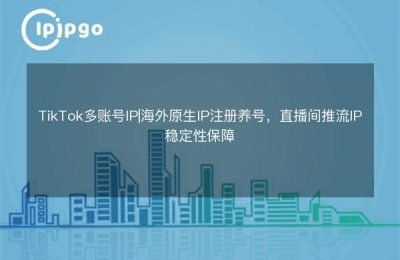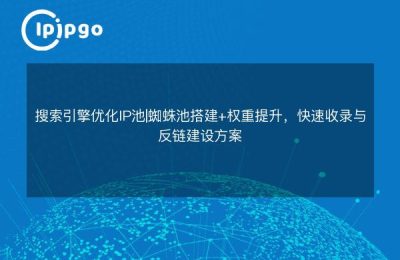
Real User Perspective: Why do you need multi-region proxy IPs for SEO testing?
Many webmasters have found that their websites have huge fluctuations in search rankings in different regions, for example, a page that can be firmly ranked in the top 3 in the United States may fall to the second page in Germany. This geographical ranking differences may stem from the server location, localized content match, or even search engine algorithm adjustment. Modifying your website based on guesswork is like walking through a labyrinth blindfolded...Simulating real user access with proxy IPs is the core means of pinpointing the problemThe
Hands-on: three steps to complete the geographic SEO diagnosis
Step 1: Locate the problem area
Through the ipipgo background filter, check the target countries with fluctuating rankings (e.g. Germany, Brazil, Japan), and the system will automatically assign residential IPs in the corresponding regions. these IPs come from local home broadband, which can realistically reproduce the scenarios of ordinary users' access.
Step 2: Real-time IP switching test
Configure the proxy port provided by ipipgo in your browser or crawler tool to quickly switch between 10-20 different city nodes when testing a single page. For example, when testing German rankings, perform searches with IPs in Berlin, Munich, and Hamburg, and record the differences in ranking positions for the same keyword in different cities.
Step 3: Data cross-comparison
Compare the original server access data with the search results obtained by proxy IP. A travel website once found that the keyword "hotel booking" ranked 5th when using Frankfurt IP, but did not enter the top 20 when using Munich IP, and finally found that the lack of Bavarian hotel data in the page led to regional ranking decline.
Dynamic VS Static IP Selection Guide
| take | Recommendation Type | Advantages of the ipipgo program |
|---|---|---|
| Continuous monitoring of ranking fluctuations | Static Residential IP | The same IP can be maintained online for 72 hours, avoiding the interference of CAPTCHA caused by frequent IP changes. |
| Multi-city fast polling | Dynamic Residential IP | Automatically change the city node for each request, and get data from Sydney→Tokyo→Los Angeles within 20 seconds. |
Avoiding the pitfalls that anyone with an 80% would step into
- Don't use data center IPs for testingGoogle and other engines recognize server room IPs and rank them differently.
- Pay attention to IP purity: Some proxy service providers' IPs are abused, which may cause distortion of the test results. ipipgo has passed all the residential IPs.3 layers of wind control filtrationThe IP address of the IP address of the user can be shared by up to 3 users per IP address.
- Time zone matching principle: Test European rankings to avoid using the IP of Asian time, some engines will adjust the display results according to the visit time
Practical QA: Typical questions you may encounter
Q: Why does the content I see when I visit with a UK IP not match the screenshots of my local friends?
A: Check if the browser cache is cleared, it is recommended to work with ipipgo's traffic forwarding function in no trace mode to ensure that all requests are sent through the target IP
Q: How do I manage a large number of IPs when testing multiple countries at the same time?
A: provided by ipipgoBulk IP Management InterfaceThe IP pools corresponding to country codes can be generated directly, e.g. IP pools starting with DE are automatically populated with nodes of the German states.
Q: What should I do if I encounter an anti-climbing mechanism on a website?
A: Turn on ipipgo'sBrowser Fingerprint EmulationThe automatic matching of local user device parameters reduces the risk of being recognized as machine traffic
Why do professional teams choose ipipgo?
When an e-commerce team needs to monitor the search rankings of 16 countries/regions at the same time, the traditional solution needs to configure 16 overseas servers, whereas with ipipgo you only need to check the box on the proxy management page:
1. Prioritization of countries/regions (e.g., focus on monitoring the United States, Germany, Japan)
2. Select IP change frequency (every 5 minutes or per request)
3. Export of geo-tagged monitoring data
Measured comparison shows: With the use of pure residential IPs, the accuracy of search engine return results is increased by 37%, because ipipgo's library of 9 million+ residential IPs can accurately match the real user network environment in each city.








